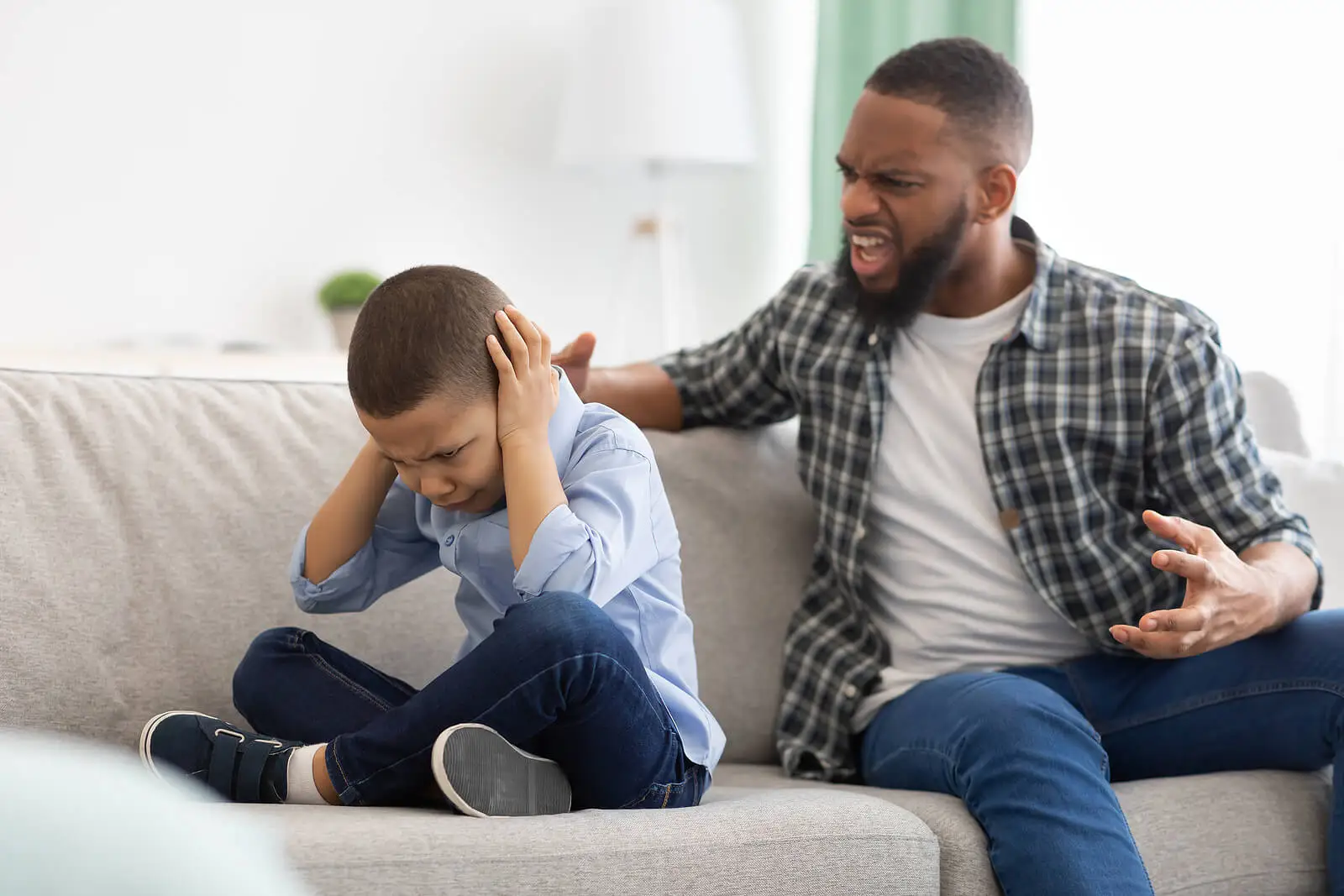Parental Burnout: What It Is and How to Overcome It


Written and verified by the psychologist Montse Armero
Parental burnout is a psychological state of chronic discomfort that arises when an adult does not have sufficient resources to deal with the stress that parenthood generates. In general, it’s characterized by extreme psychological exhaustion, loss of parental fulfillment, and emotional distancing from the children.
The concept of parental burnout is relatively new. It emerged in the 1980s when it was observed to affect parents of chronically or severely ill children. However, for the last decade or so, parents have been increasingly manifesting this syndrome.
In the current social context, there’s a lot of pressure on parents. So-called positive parenting demands that they take care of their children with a level of involvement never seen before. Thus, parents are somehow required to provide their children with a good education, financial security, emotional stability, good self-esteem, healthy food, and a long list of other things that are impossible to fulfill on their own.
The existence of social networks where we can see parents who seem to live in an idyllic fantasy world has only further damaged the feeling of dissatisfaction that many parents have with their real lives.
The characteristics of parental burnout
Most parents know what parental stress is. It’s well known that children provide a great deal of personal satisfaction and fulfillment, but they can also generate very stressful moments.
Most of the time, parents learn to cope with these occasional moments of stress. However, about 5% of parents end up developing parental burnout syndrome.
This syndrome is characterized by a series of situations, experiences, and emotions such as the following:
- Loss of self-fulfillment from parenting
- Extreme exhaustion
- Emotional detachment from their children
- Ideas and fantasies of escape
- Recurrent negative thoughts such as “I can’t take it anymore” or “I can’t stand my children”
- Experiencing parenthood as an obligation or misfortune
You’ll definitely like this article: 8 Useful Tips to be an Independent Person
Risk factors for parental burnout
Although parental burnout occurs in both men and women, women are twice as likely to suffer from it. Other people at greater risk are low emotional resources, mental disorders, very perfectionist traits, single parents with young children, parents with little social support, or insufficient economic resources.
If we focus on children, parents with children with special needs are much more at risk of suffering from parental burnout. These can range from illness or disability and autism spectrum disorder or a behavioral disorder, for example.

The consequences of the stress of parenthood
The consequences of suffering parental burnout will depend largely on the time the burnout has been experienced, personal characteristics, and other factors, such as seeking help.
Some of the most important are the following:
- Feelings of guilt and shame
- Increased irritability
- Sleep disorders
- Elevated cortisol levels
- Anxiety, sadness, or depression
- Frequent headaches or digestive discomfort
- Difficulty concentrating
- Marital conflicts
- Deterioration of the parent-child relationship
- Increased consumption of alcohol or psychoactive substances
- The appearance of psychological and physical violence
- Suicidal ideation in extreme cases
How to prevent parental burnout
One of the best ways to avoid parental burnout is to follow a series of behaviors within reach of most people. Let’s look at some of them.
Reduce your expectations
The self-demands that parents with burnout put on themselves are high.
Often, they think they have to be perfect parents, giving their children everything they didn’t have and adding every new strategy that benefits them, such as mindfulness for kids, chess, playing an instrument, public speaking classes, or team sports.
The reality is that life is complex. While giving the best to children is desirable, it’s not always possible to provide it, at least not in all areas. Therefore, parents must learn to adjust expectations to their available resources.
Don’t give up
When you suffer from job burnout, you always have the option of quitting that job. On the other hand, you’re a parent for life, and throwing in the towel is not an option.
However, don’t forget that most of the time, the situation can get better, even if in the most stressful moments we don’t know-how.
The important thing is that children don’t perceive that their parents have given up, which will only worsen the situation. For a child who thinks that their parents does not care about them and feels abandoned, it’s very likely that sooner or later, they will end up engaging in dysfunctional behaviors.
Search for your own space
If the person suffering from parental burnout is raising a child alone, they must look for moments to dedicate some time for themselves. Far from being a selfish act, setting aside personal time helps to restore energy. Taking good care of yourself is key to being able to take good care of others.
In the case of joint parenting, the couple should find spaces for both parents to have some time alone. However, this should not be to take care of household chores or work, but fir quality time to disconnect from the family nucleus and return home refreshed.

Talk to someone you trust
When a person suffers from parental burnout, they may think they’re a bad parent, a bad person, and that no one else feels the same way. However, this is not the case.
We only have to think, for example, of how many millions of parents suffered from a similar experience at some point. So, sharing our concerns with someone who may be going through or has gone through something similar can alleviate a lot of suffering.
Ask for help from those around you
Something that can work when a parent is exhausted is to turn to outside help. This can come from friends who stay with the children for an afternoon, family members who spend the weekend with them, or through hiring someone directly.
Asking for help from others takes away the feeling of loneliness. Therefore, it’s a strategy to take into account.
Ask for professional help
When a parent notices that they’ve been experiencing parenthood in a stressful way for some time and nothing else seems to work, it’s a good time to consider professional help.
There are psychologists who specialize in stress management who can provide numerous tools and strategies to deal with parenthood in a much healthier way.
We think you’d like to read: Seven Tips to Discover Your True Passion
Some final thoughts on parental burnout
Today’s society is increasingly complex, and many parents experience parenthood with a lot of stress. Everyone should know where their limit is and how much stress they can manage without their physical and mental health suffering.
Some people find the right strategies and cope with the most complicated part of parenthood well. Some people don’t. We’re all different and have different circumstances.
So, if this is your case and parenthood has been overwhelming you for some time, you shouldn’t wait for the situation to change on its own, because it seldom does. If you have tried some parenting techniques or methods and your stress level is getting the better of you, it may be time to ask for help.
A professional, such as a clinical psychologist or a general health psychologist, will probably be the best person to help you manage your current emotional state. If you don’t know any, you can ask at the official school of psychologists in your region or country, and they’ll be able to advise you.
All cited sources were thoroughly reviewed by our team to ensure their quality, reliability, currency, and validity. The bibliography of this article was considered reliable and of academic or scientific accuracy.
- Mikolajczak, M., Gross, J. J., & Roskam, I. (2019). Parental Burnout: What Is It, and Why Does It Matter? Clinical psychological science, Vol(7),6, 1-32. [fecha de consulta 26 de octubre de 2021]. doi:10.1177/2167702619858430
- Richards, N. (2010). The Ethics of Parenthood.
- Roskam, I., Raes, M.E., & Mikolajczak, M. (2017). Exhausted Parents: Development and Preliminary Validation of the Parental Burnout Inventory. Frontiers in Psychology, Vol.(8),163. [fecha de consulta 26 de octubre de 2021]. Recuperado de https://doi.org/10.3389/fpsyg.2017.00163
This text is provided for informational purposes only and does not replace consultation with a professional. If in doubt, consult your specialist.








